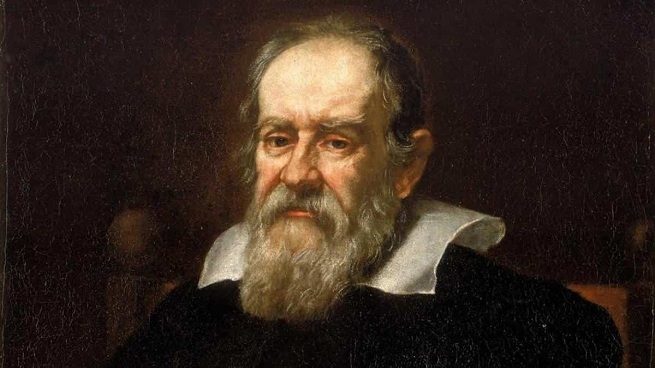When Galileo Underwent Quarantine!
| Date :05-Jul-2020 |

I talian astronomer-physicist Galileo Galilei had some torrid time in the 1630s- he wasinpoorhealth, faced a house arrest and a trial due to a controversial book and also had to undergo quarantine for almost a month becauseoftheragingplaguethen,recounts a new book. Galileo and the Science Deniers is a historical biography on the life of Galileo by astrophysicist Mario Livio which gives a glimpse into the life of a “manwho was intellectually radical and well ahead of his time”. Galileo’s journey as a scientist started in 1583, when he dropped out of medical school and began to study mathematics.By1590,healreadyhadtheaudacity to criticise Aristotle’s teachings on motion,accordingtowhichthingsmoved because of a built-in impetus.
About 13 yearslater, following a series of ingenious experiments with inclined planesandpendulums,he formulatedthe very first ‘laws of motion’ concerning freefall, even though he would not publish those until 1638. But Galileo’s several bold statements put him onacollision course with the Catholic Church and he was eventually pronounced ‘vehemently suspected of heresy’ on June 22, 1633. “Overall, if we examine the record of Galileo’slife in terms of his personal contentment,it traces something like aninverted-Ushape,with apronounced peak somewhere shortly after his numerous astronomical discoveries, followed by a fairly steep fall,” writes Livio. In spite of his personal disagreements with some orthodox church dicta, aslate asMay18,1630,Galileo was still received in Rome as an honoured guest by Pope Urban VIII, and he left Rome under the impression that the Pope had approved the printing of his book Dialogue on the TwoChiefWorldSystems,afteronlya few minor corrections and a change of title. “Overestimating the strength of his friendship with the Pope and underestimating the fragility of the delicate psychological and political position of the Pope at that turbulent post-Reformation era, Galileo continued to believe that reason would prevail,” says Livio.
“In the preface to thebookGalileopurported to discussthe Earth’smotionmerelyasa ‘mathematical caprice’, the textitself had a very different flavour. In fact, Galileo taunted and deridedthosewhostill refused to accept the Copernican viewinwhich the Earth revolved aroundthe Sun,” the book,publishedbySimon&Schuster,says. ForGalileo,however,the publication of the Dialogo (as the book is commonly referred to), marked the beginning of the end (of hislife,not of hisfame),says Livio. “Hewas examined by the inquisitionin 1633, pronounced a suspected heretic, forcedtorecanthisCopernicanideas,and eventuallyplacedunderhousearrest.The Dialogo was put on the Vatican’sIndex of ProhibitedBooks,whereitremaineduntil 1835,” he writes. Left with no option despite his failing health, “Galileo departed for Rome on January20,1633, but because of the raging plague,he had to be quarantined before crossing from Tuscany into the Papal States, a stop which turned out to be painfully long and unpleasant,” he says. “Consequently,he arrived to Romeonly on February 12th,fortunately to the comfort and warm hospitality in the home of Tuscan Ambassador Francesco Niccolini and his wife.”
After meeting with a few Church officialsfor advice in the first few days, in the following weeks, Galileo barely left the house,sinceCardinalFrancescoBarberini advised him against socialising, for fear that it ‘could cause harm and prejudice’, Livio writes. And then he faced trial. Galileo died in 1642 at his villa in Arcetri near Florence, after having been blind and bed-ridden for a while. Livio says Galileo’s story may be more relevant today than ever before. “At present, we face enormous crises - such as the minimisation of the dangers of climate change-because the science behind these threatsis erroneously questioned or ignored. Galileo encountered this problem 400 years ago,” he writes.
“Hisdiscoveries,basedoncarefulobservations and ingenious experiments, contradicted conventional wisdom and the teachings of the church at the time. Consequently,ina blatantassaultonfreedom of thought, his books were forbidden by church authorities,” he adds. Livio says he has always been fascinated by Galileo. “He was, after all, not only the founder of modern astronomy and astrophysics - the person who turned an ancient profession into a window onto the universe’s deepest secrets and aweinspiring wonders - but also a symbolofthe fight forintellectualfreedom.” (PTI) ■